The 2024 FrontSeat Summer School, as part of the goals of the project FrontSeat, was organized on September 9-13, at the Department of Civil and Industrial Engineering of the University of Pisa, Italy, by the group of Prof. Gabriele Pannocchia. The organization was completed by the two researchers Dr. Riccardo Bacci di Capaci and Dr. Marco Vaccari.
This second edition of the FrontSeat Summer Schools focused on Optimization-Based Control, giving students both theoretical knowledge and practical insights into advanced methods for optimal-based control. The event was designed to bring together experts, researchers, and students interested in the field: twenty-two PhD students from eight European countries enjoyed the 5-days program comprised of theoretical lectures, interactive workshops, and pleasant social activities.
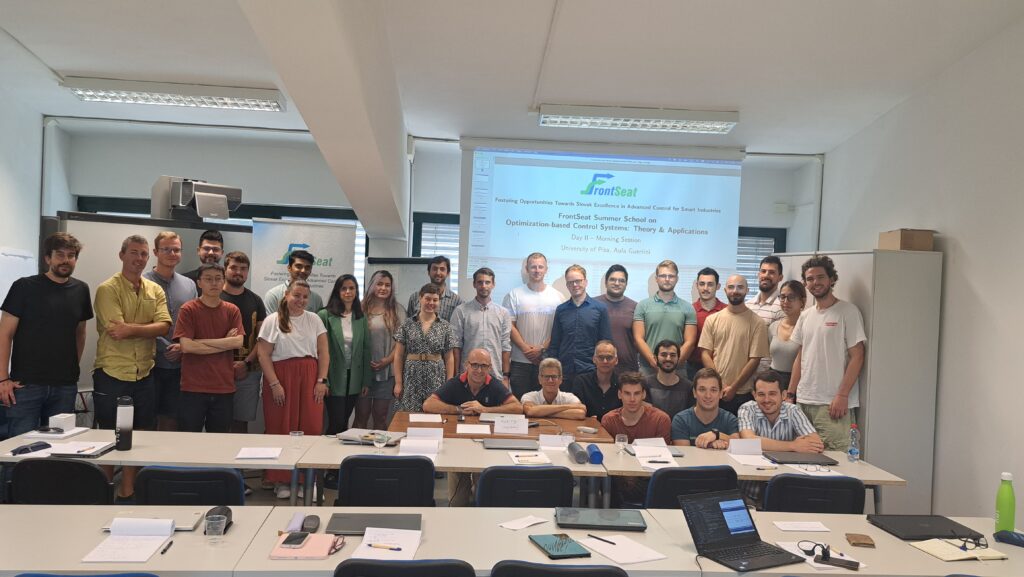
The FrontSeat Summer School included cutting-edge lectures delivered by experts in optimal control. These theoretical lessons covered a wide range of topics, from state-of-the-art approaches to the formulation and solution of optimal control problems, the basis of numerical optimization, model predictive control design, and data-driven modeling techniques of traditional and machine-learning methods. Participants could also apply theoretical knowledge in practical settings through interactive workshops. These workshops provided invaluable experience in implementing the most recent approaches using open-source software tools.
More pictures and related materials are available at the dedicated homepage of the FrontSeat SummerSchool.
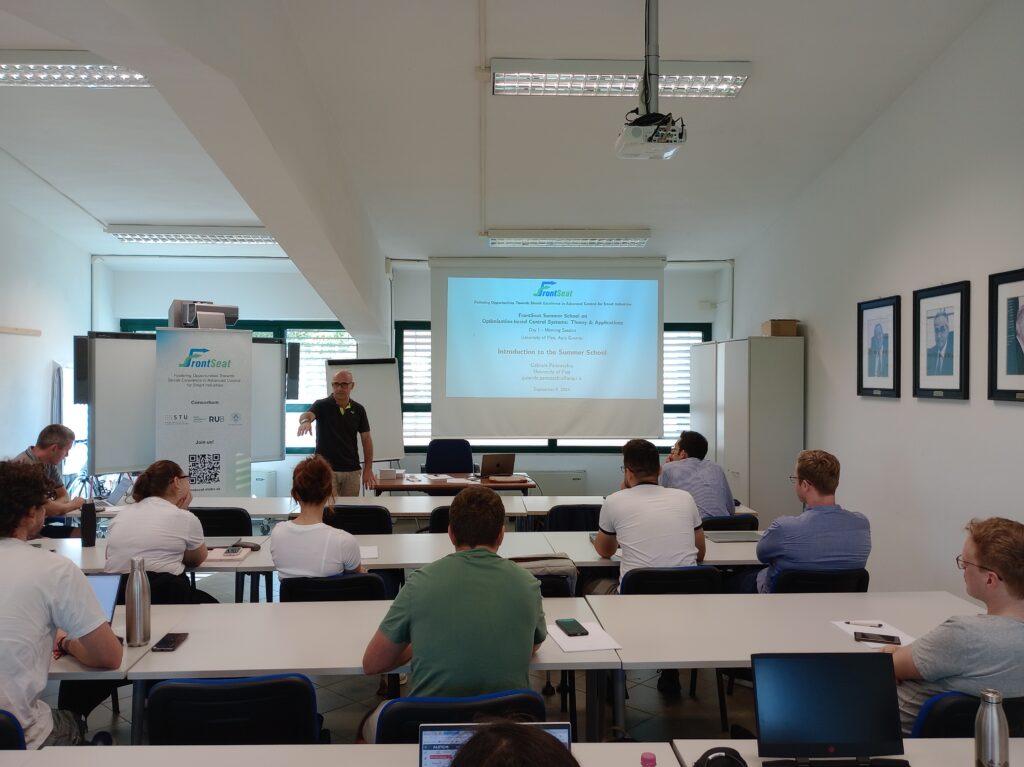
The event was opened by a welcome speech delivered by the 2024 FrontSeat Summer School coordinator Prof. Gabriele Pannocchia (UNIPI). After a brief introduction, the program and organizational personnel were formally introduced, and the professor outlined the motivations for optimization-based control. Control issues and objectives of multivariable systems were outlined, so that the need for model-based advanced control strategies was explained.
Keynote Lectures
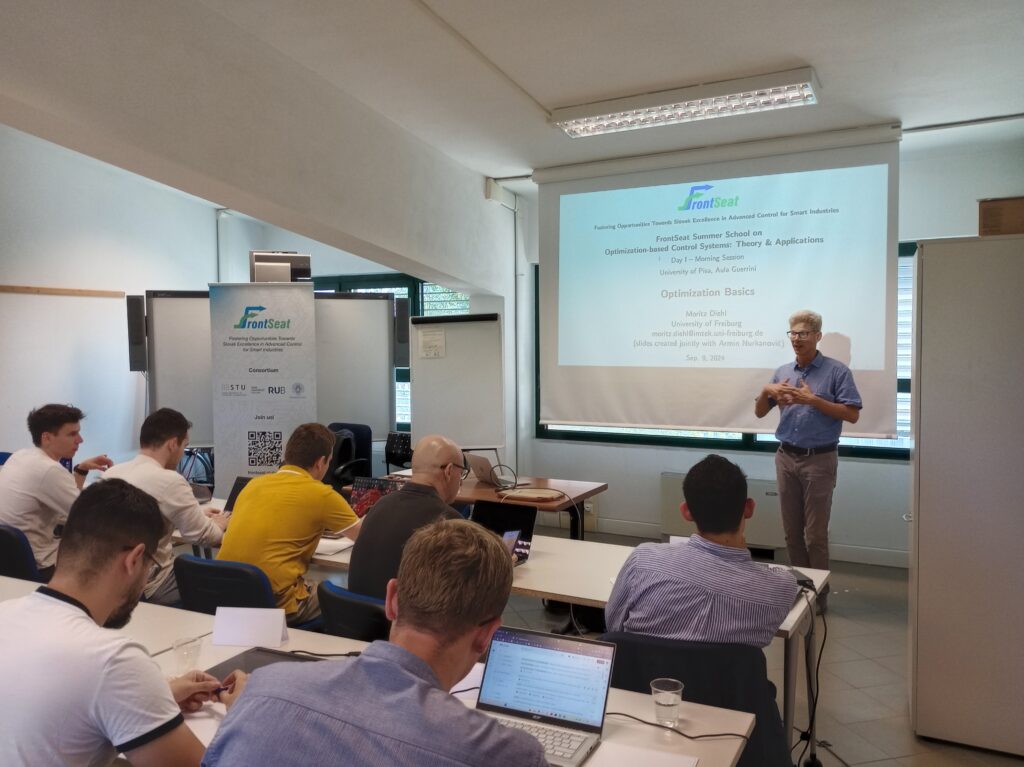
Then, the Summer School came into full swing. Our special guest, Prof. Moritz Diehl (University of Freiburg), a renowned expert in the field of optimal control and MPC, delivered three interesting lectures: “Optimization basics” and “Nonlinear optimization” on Day 1 and “Numerical integration and direct optimal control methods” on Day 2. He also supervised the Workshops on Day 1 and Day 2.
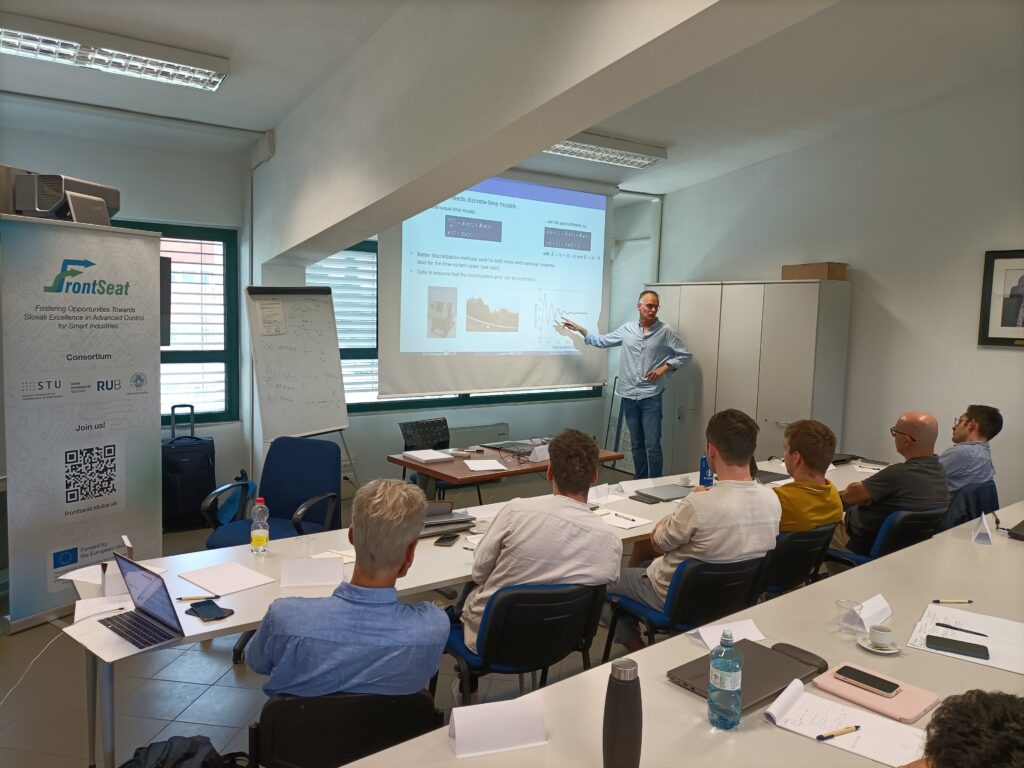
Prof. Martin Mönnigmann (Ruhr-Universität Bochum, RUB), the FrontSeat coordinator for RUB, also contributed to the core program. As a recognized expert in the field of optimal control and MPC, he delivered two engaging lectures: “Linear MPC and QP” on Day 1 and “Nonlinear MPC” on Day 2.
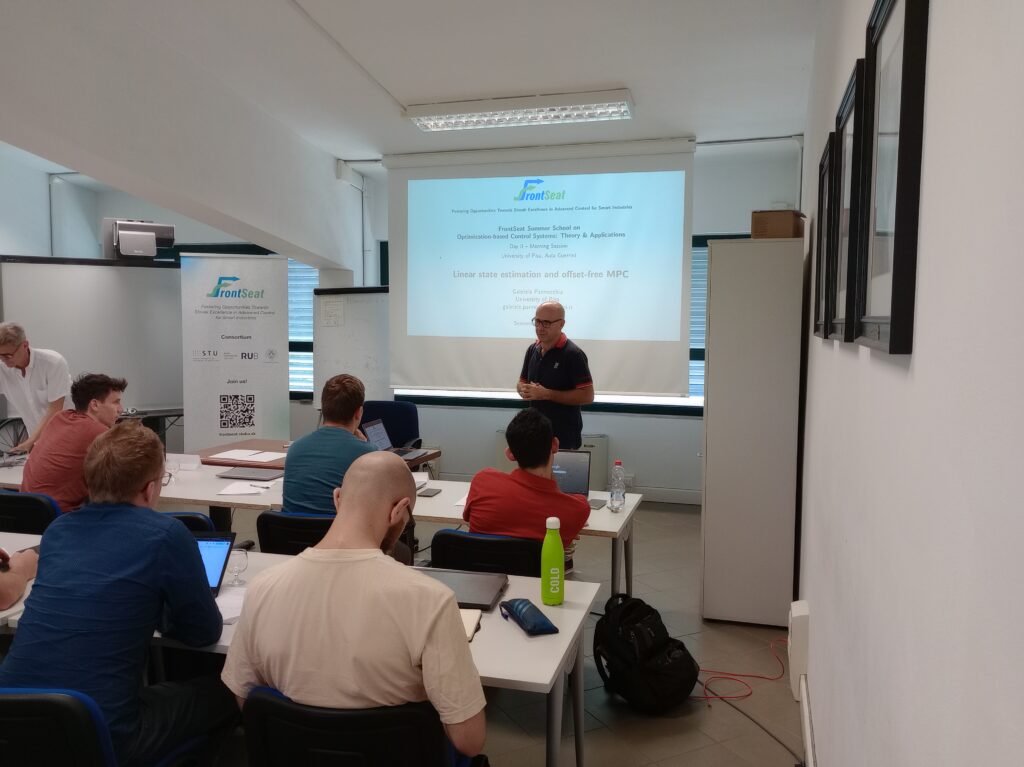
Finally, Prof. Gabriele Pannocchia (UNIPI), completed the rich program of the first two days and, as a recognized expert in the field of optimal control and MPC, his captivating lectures were on: “offset-free MPC” and “Moving Horizon Estimation” on Day 2.
Lectures and Workshops
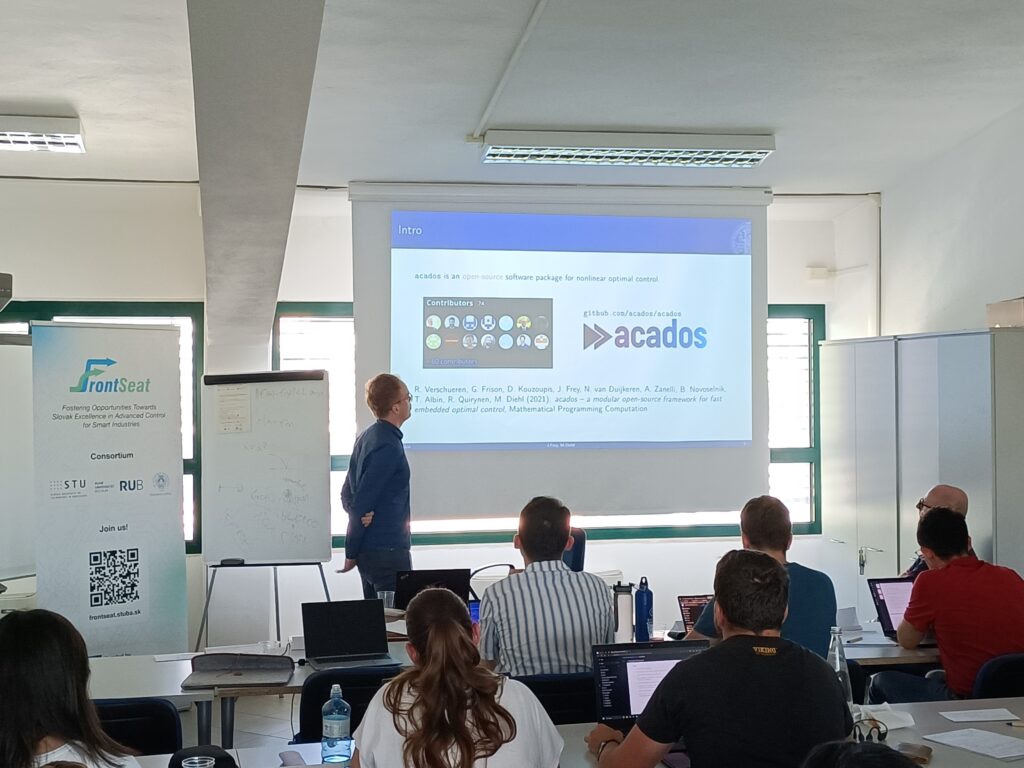
Jonathan Frey, PhD student at the University of Freiburg, an expert in the field of optimization and CasADi and acados, delivered a lecture on “Introduction to CasADi and acados” and organized the Workshops on Day1 – generic NLP – and Day2 – acados.
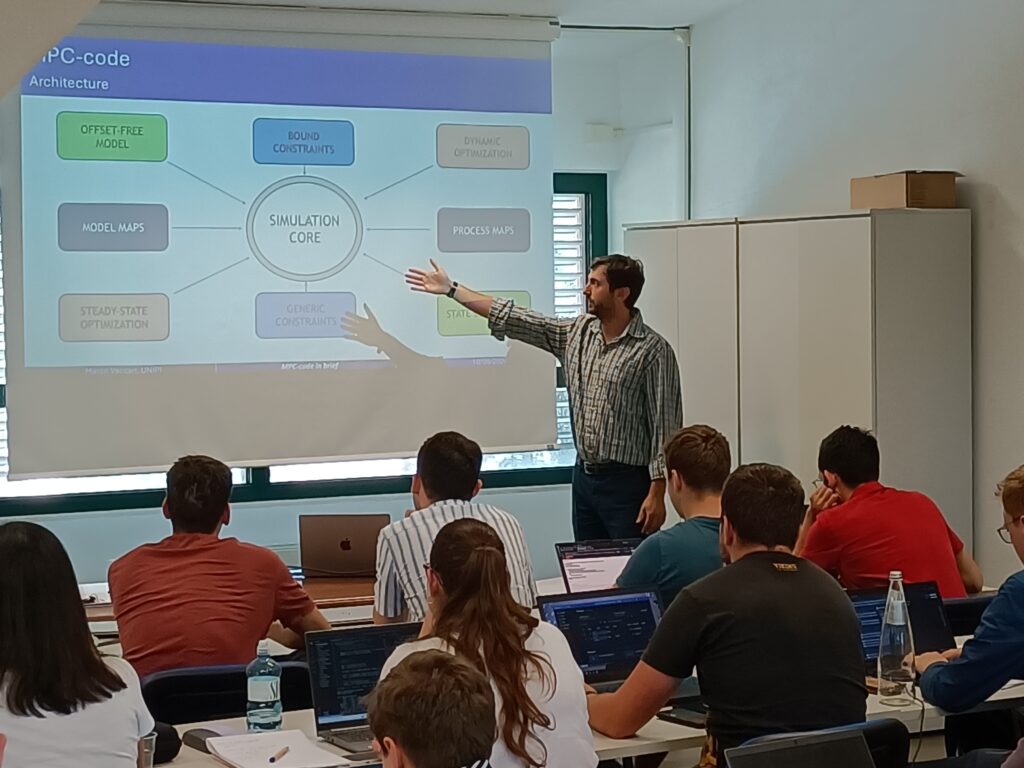
Assistant Professor Marco Vaccari (UNIPI), an expert in the field of process simulation, optimization, and MPC, delivered a lecture on “Introduction to MPCCode” and organized the Workshops on Day 1: Linear MPC/QP, and Day 2: MPCcode.
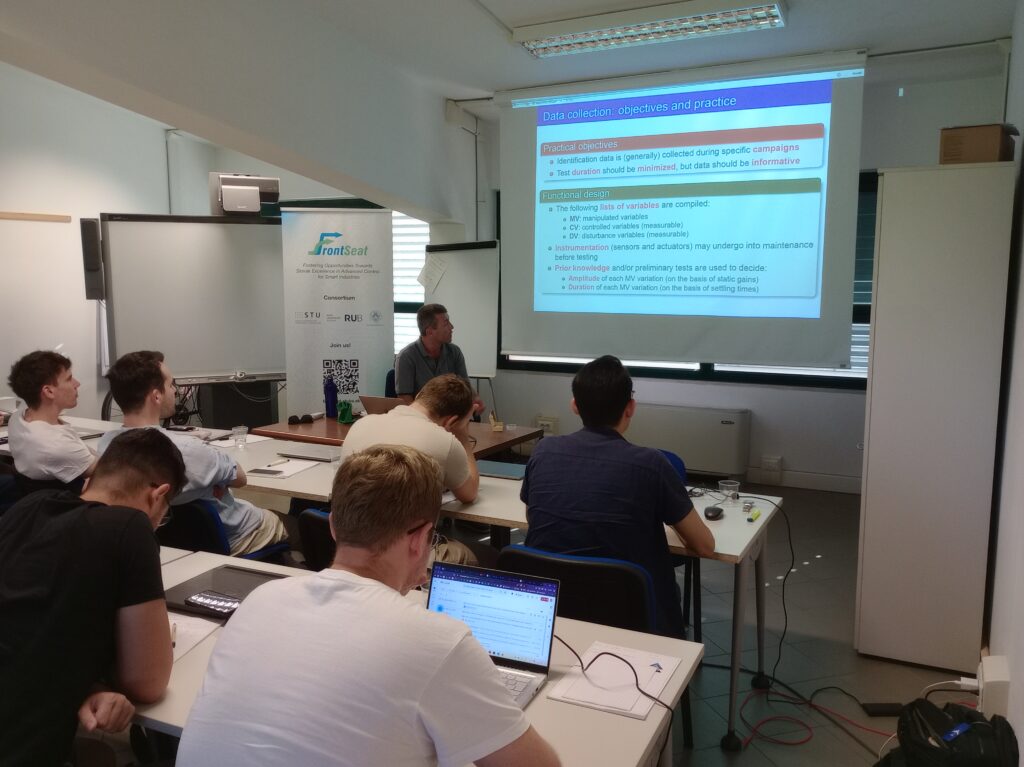
Assistant Professor Riccardo Bacci di Capaci (UNIPI), an expert in the field of process modeling and simulation, delivered a lecture on “Systems identification: traditional data-driven methods” and organized the relative Workshops on Day 3 – SIPPY tool.
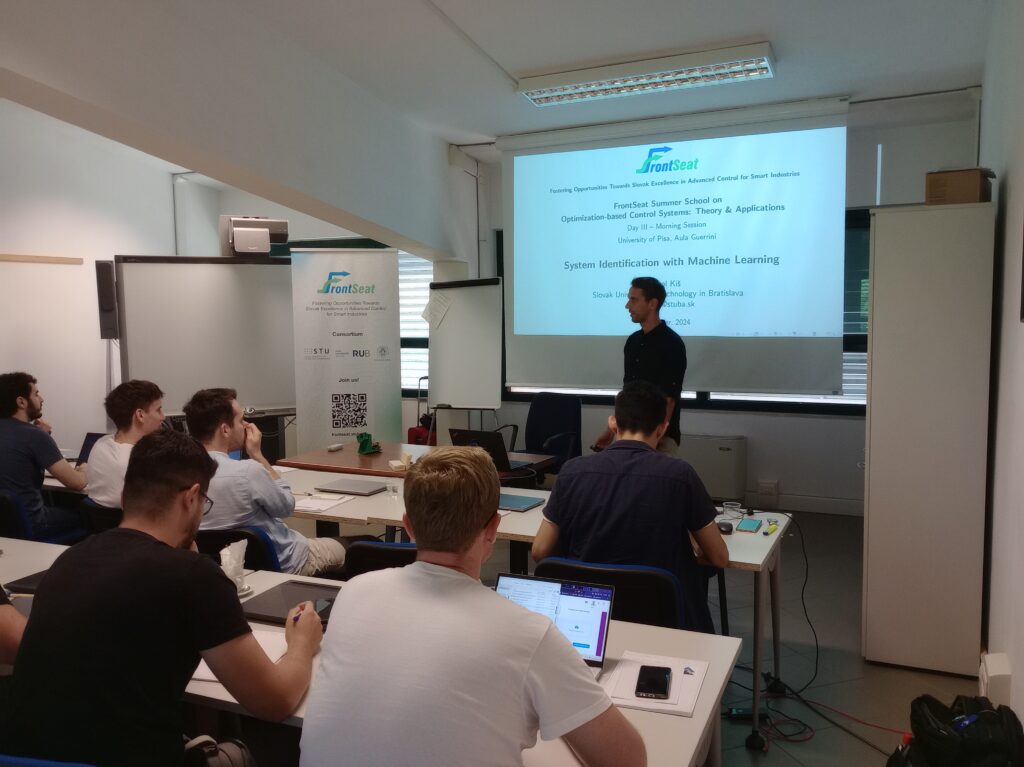
Dr. Karol Kiš (STUBA), completed the program on Day 3, and as an expert in the field of process modeling and simulation, delivered a lecture on “Systems Identification with Machine Learning”. He also organized the relative Workshops on Day 3 – Neural Networks Pytorch.
Students’ Projects
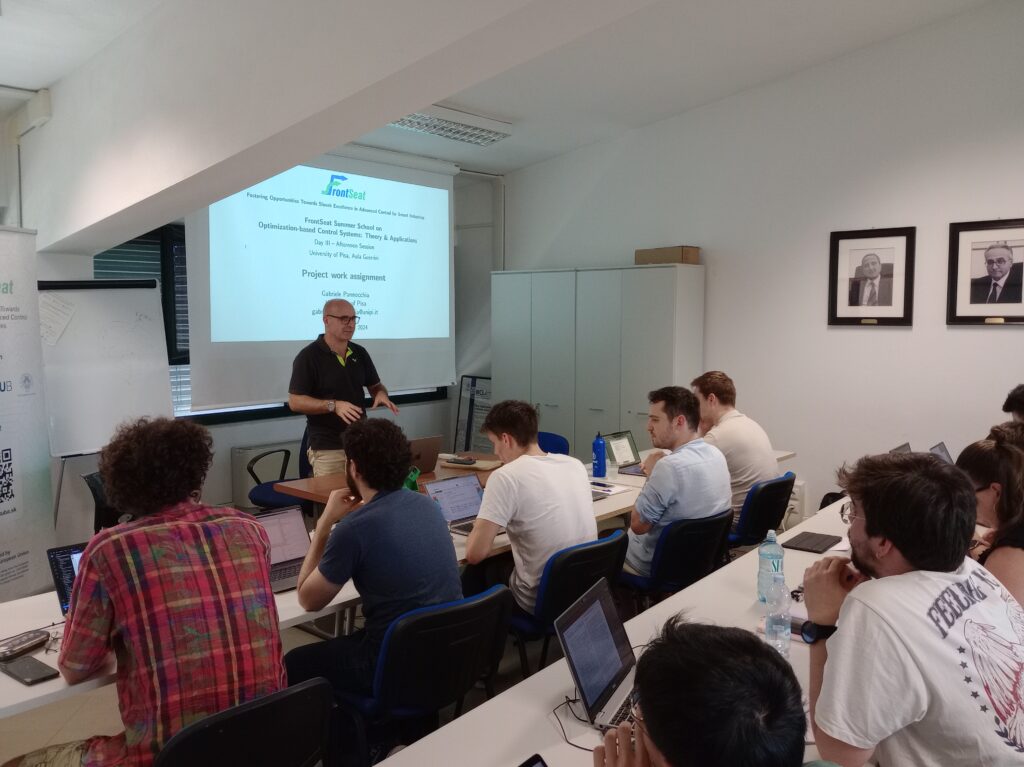
From Day 4 students were divided into small groups, exploiting the methods and software used during the course. They had the freedom to compose the project team and select their application problem.
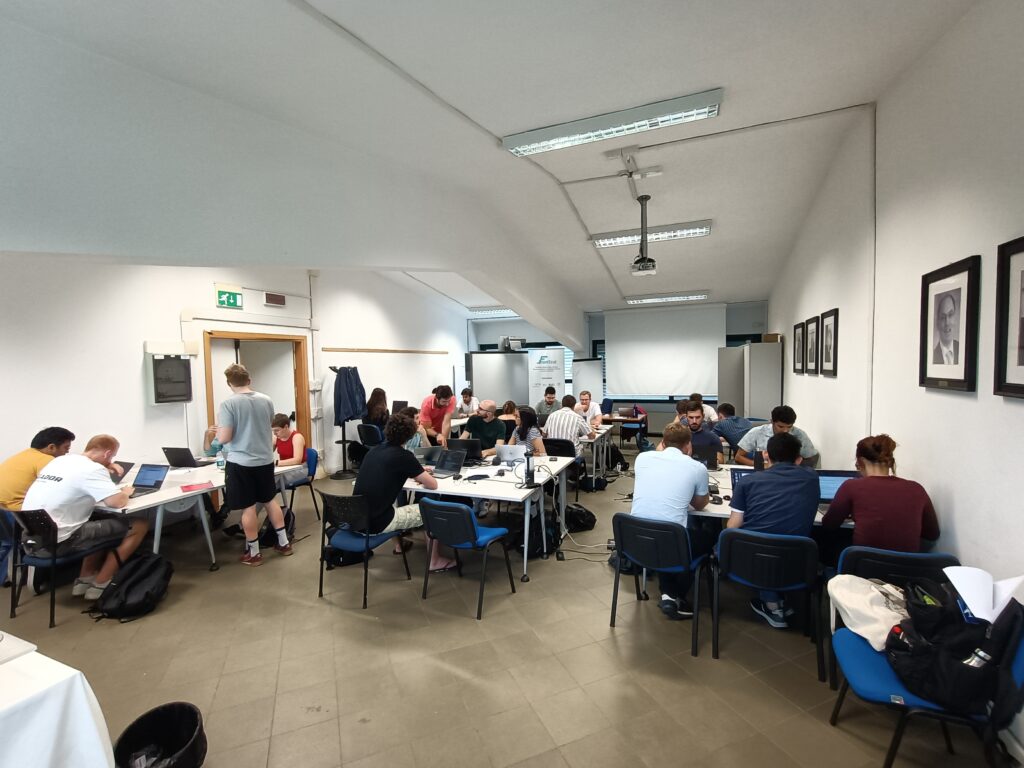
Students worked in 6 small groups and real-time supervision was provided by the teachers so that the session allowed constructive discussions, feedback, and exchange of innovative ideas.
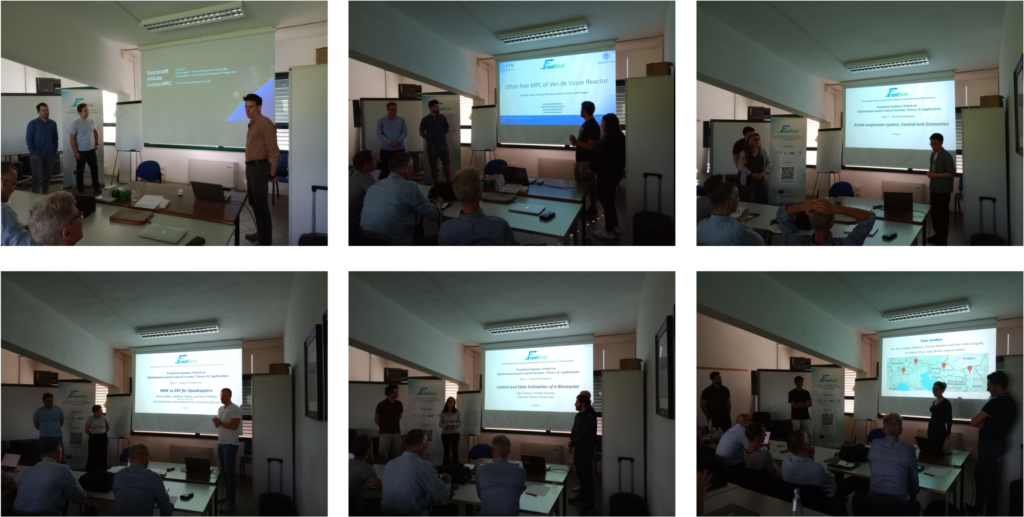
Finally, on Day 5 students presented their research projects focused on optimization-based control. Teachers listened with interest, appreciating the efforts made and the result achieved, and providing fruitful feedback and suggestions for the future.
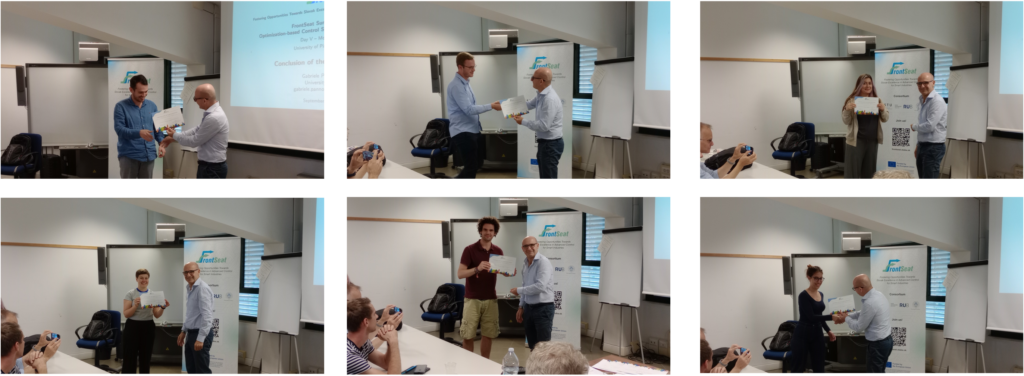
All attendees received a certificate of participation upon completion of the summer school, recognizing their dedication to advancing the field of optimal control.
Social Program
Moreover, the FrontSeat Summer School fostered an environment for networking and teamwork. In addition to the academic program, students enjoyed the millennial culture and history of Pisa through an engaging social program.
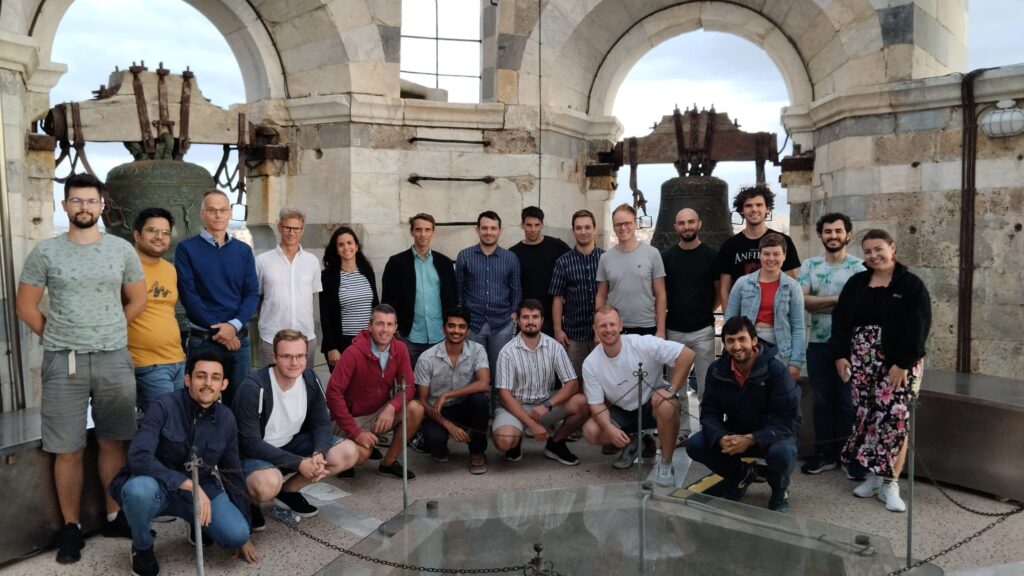
Visiting the famous Piazza dei Miracoli and the Leaning Tower of Pisa.
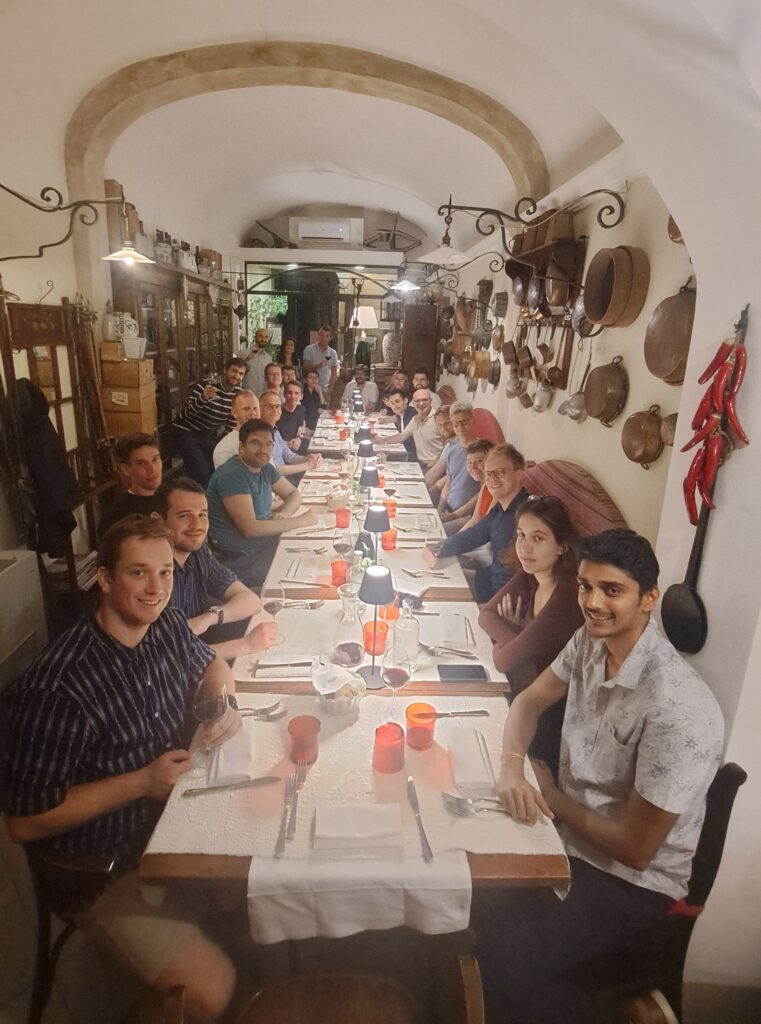
Enjoying the pleasant social dinner.
Text/Photo: Dr. Riccardo Bacci (UNIPI)
This project has received funding from the European Union’s Horizon under grant no. 101079342 (Fostering Opportunities Towards Slovak Excellence in Advanced Control for Smart Industries).
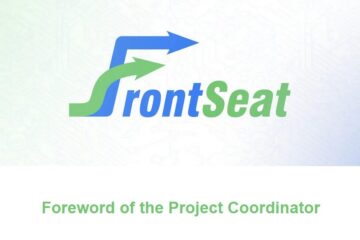
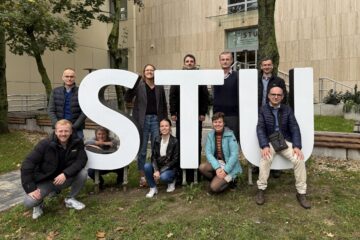
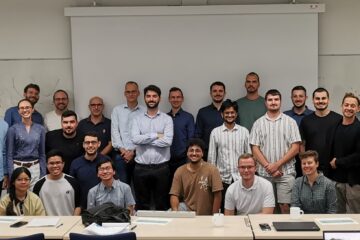


1 Comment
Traineeship at UNIPI - FrontSeat · November 15, 2024 at 2:14 pm
[…] MPC fundamentals through guided study and presentations. A major milestone was participating in the FrontSeat Summer School, where she attended workshops on state-of-the-art tools like CasADi, acados, and PyTorch. During […]